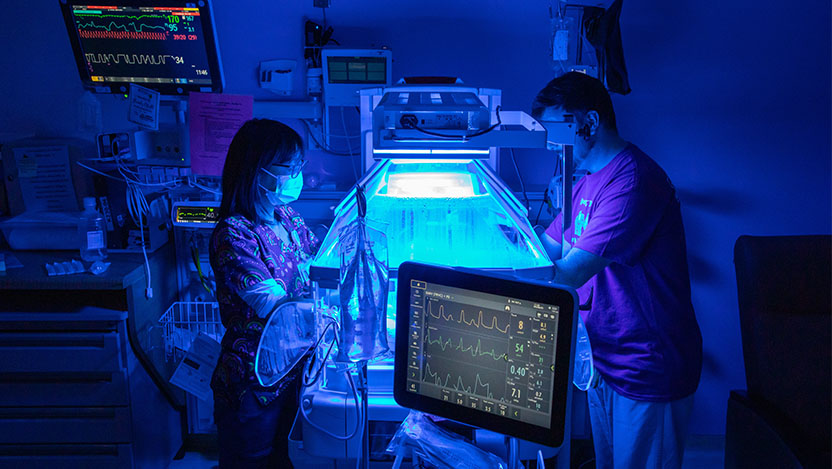Small Baby Unit

The Small Baby Unit within the Comer Children’s Hospital Neonatal Intensive Care Unit (NICU) provides advanced, specialized care for the most premature babies.
Babies born at 30 weeks or less or weighing less than 1250 grams (2.76 pounds) have different developmental and medical needs than other babies.
This 16-bed unit receives patients as early as 22 weeks of gestation.
Learn more about Small Baby Unit director, Dr. Kelly
At this early age, minimizing stimulation is key.
The Small Baby Unit optimizes the environment for these unique patients, including creating a space that remains dark and quiet to safe guard sleep and optimize neurodevelopment.
Other areas of care closely followed include:
- Appropriate developmental positioning
- Respiratory support needs
- Nutrition and growth
- Promotion of parent-baby bonding
"By having more specialized multidisciplinary care teams and a dedicated space curated for this patient populations’ needs, outcomes can be improved."
Kelly Nelson Kelly, MD
Director, Small Baby Unit and Medical Director, NICU

